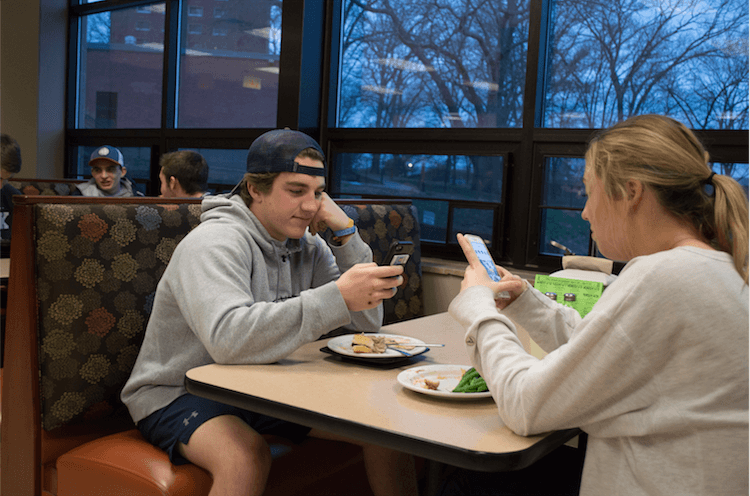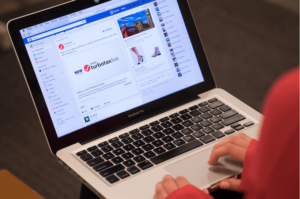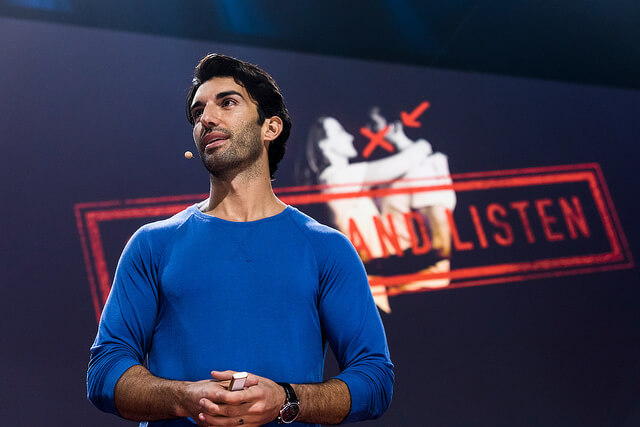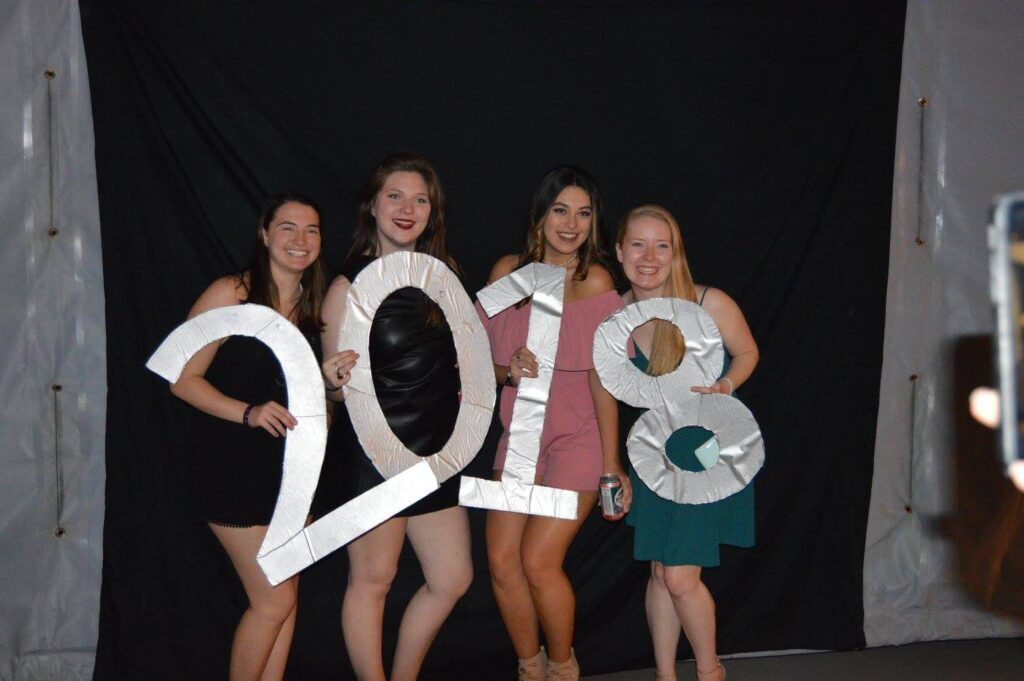Tag: Kelsey Dass ’18
Class of 2018: Was It Worth It?
by The Cowl Editor on May 3, 2018
Campus

lasting memories and relationships. Photo courtesy of Providence College.
As the graduating class of 2018 begins to collect their cords, graduation tickets, and senior week attire, we reflect on our time here at Providence College. With the grand total cost of tuition averaging about $250,000, give or take a couple thousand, it is time to ask the big question. Was it worth all the money?
PC does have extremely high tuition and is, in fact, one of the more expensive colleges in the country.
However, everything we have done, learned and experienced is all equally valued in those $250,000.
There is no doubt that there is an evident rising cost of tuition in the United States. Especially when it comes to private schools, the jump has been tremendous.
If we just look at tuition itself and disregard room and board, from 1988 to 2018 there has been a 129 percent increase. In 1988 tuition was $15,160, today it is upwards of $34,740. The difference is significant and there is no sign of a decrease in the future.
The question is, why did we choose PC and how has it been worth it? There are many students who choose to go to a community college or a state university right after high school based on the cost.
Often this is suggested to students who really do not know what they are passionate about learning or in which field they may be interested in pursuing a career. This gives them the opportunity to figure out what they want, without breaking the bank first.
Some believe that just simply choosing an expensive college that you are attracted to, without weighing in the fact that you have absolutely no idea what you may want for your future, could appear wasteful.
On the other hand, many students come into PC as an undeclared major, and they felt the classes and opportunities offered here helped guide them towards their successful career paths.
Brianne Crough ’18, a double major in health policy and management as well as economics, attests to her experiences coming into PC as undeclared, “The combination of PC’s liberal arts education, faculty, and advisors all helped expose me to a plethora of career paths while also supplying individualized support that I do not believe I would have received at a larger state school.”
The courses at PC, especially the two mandated years of Development of Western Civilization truly open up the minds of students. With a better understanding of the world around us and how it came to be, we make better decisions about what we want for our future.
Here at PC, you better understand not only your career path but more importantly, what character you want to reflect in the next stage of your life.
I chose to come to PC because when I stepped on campus it felt like home. This foreign place was one I knew would essentially be one of life’s hardest goodbyes. All of the graduating seniors chose PC for one main reason, it was the place our parents trusted their children with and it became the place we trusted our life with.
The friendships, relationships, and memories we have made here cannot be measured. Chelsea Keane ’18 brings a different perspective on what is valued: “Providence College was much more than the money; aside from the amazing education we have received, you simply cannot put a price on the memories we have created, the lessons we’ve learned and the people we have become in the past four years.”
PC is costly, there is no doubt about that. However, the College’s values and opportunities changed our lives, and there is simply no way to measure who we have become by a number.
Social Media is Skewing Our Relationships
by The Cowl Editor on April 19, 2018
Editorials

by Kelsey Dass ’18
Opinion Staff
Just about every other person you meet on a college campus is currently in a relationship, has been in one before, dated, or casually hooked up with another person they have come to really like.
Modern technology and ideologies surrounding dating have diminished the value and significance of relationships to an all-time low. Social media has altered our standards for trusting and evaluating our relationships.
From the literature we read in school to the movies we watched on the weekends, our generation grew up falling in love with love. Every one of us recalls reading Shakespeare’s epic love story, Romeo and Juliet, the tale of two star- crossed lovers separated by their feuding families.
A more modern example of a love story that people idealize is Nicholas Sparks’ The Notebook. Almost every person who has seen the movie has fallen in love with the love between Noah and Allie. The letters he wrote for her each day and the individual journeys they experienced despite their broken hearts, is what drew so many people into their relationship.
So why is it that for our generation, this version of love and relationships is so unattainable?
To start, our increasing use of technology has immensely impacted our relationships. On average, Americans are devoting 11 hours per day to screentime. Half of our days are spent scrolling through Instagram, Twitter, Facebook, Snapchat, and other social media outlets.
To make matters worse, these systems are constantly advancing, now allowing us to follow people’s every move with their “stories” and live video feeds. We can quite literally step into the life of another person through the rectangular screen in our own hand.
The issue is that we are actually using social media as a representation of trust in our relationships. Every person is aware of the feeling they get when a person they like or have been dating “likes” one of their Instagram posts. For some reason, through some psychological conditioning, we have been taught that this means they are communicating that they genuinely like us. In actuality, that person also just “liked” posts from many other people as well.
It does not just stop there. We have grown to trust the number of times we have exchanged Snapchats with the person we are dating. One red heart next to a person’s name means you have been best friends for two weeks straight, so this tells us we have basically been dating for two weeks. Just you wait, if you make it to two months straight you get two pink hearts, which probably means you should go straight to Facebook and change your relationship status to “It’s complicated.” Just be careful of the grimacing emoji, because that most likely means that person is cheating on you with your best friend.
When America fell in love with The Notebook, they fell in love with the journey and the time it took to bring them back together. However, modern-day industries have worked hard to bring us what we want in just seconds. Take Tinder, for example. This dating app functions by location and you can limit the radius in which you are looking. No longer is the girl you saw in the bar a mystery. A person could simply jump on Tinder, swiping left and right until they find a familiar face.
In addition to the speedy process, these dating apps allow us to communicate what we want from a person without saying a word. There are specific apps that are known for just hookups, and others for more serious relationships.
The social media dating world has eliminated our need to communicate much of anything, yet has accelerated our relationships to lightning speed. This accelerated process of building relationships has not only lowered their significance, but has dramatically altered our values.
Searching for Privacy in the Age of the Internet
by The Cowl Editor on March 1, 2018
Editorials

by Kelsey Dass ’18
Opinion Staff
For most of history, our society lacked resources to easily access information. From finding another person’s number in the phonebook to conducting research on a distinct disease, it was a tedious challenge.
Our advancements in technology have allowed for the internet to be an incredible resource for quick and detailed information. However, the growing access to information has called an end to privacy. Privacy is one of our most valuable rights and giving it up is extremely dangerous.
As college students, the internet has become our best friend, both academically and socially. Every student at Providence College has had to write a research paper. If you are reading this and thinking, “I never had to do that,” it is most likely because it was so gruesome you blocked it out of your memory.
Writing the research paper took hours; however, accessing the articles and peer-reviewed journals took all of three seconds. Before this immediate access, college students used to sit in the library for days, sifting through endless shelves of books, articles, and old newspapers.
From an academic standpoint, the access to information has changed the approach to learning and has allowed college students to go further and study more deeply in multiple content areas.
All of us at PC were born on the cusp of the iGeneration. This means we have grown up using the internet, through both computers and cell phones and we comfortably interact with social media.
Social media is our favorite tool, whether it be Snapchat, Instagram, Twitter, or Facebook, most kids that make up iGen are constantly scrolling. While we scroll to like, comment, tag, and share our favorite pictures, videos, and memes, we blindly sell our interests on the internet.
The New York Times writers Andrew Burt and Dan Geer bring light to this pressing issue. On May 23, 2017, “Google announced that it would begin to tie billions of credit card transactions to the online behavior of its users, which it already tracks with data from Google-owned applications like YouTube, Gmail, Google Maps, and more. Doing so allows it to show evidence to advertisers that its online ads lead users to make purchases in brick-and-mortar stores.”
The minute you enter a search on Google, watch a video, and even head to a certain area using maps, the Internet chips away at your personal privacy and information. For example, the minute you search Vineyard Vines on the Internet and then check Instagram just a minute later, Vineyard Vines comes up as an advertisement on your feed.
The advertisements are so camouflaged that we simply do not recognize the slow loss of our privacy and personal information. Our generation has grown up in a world where we use the internet constantly; we are not in the process of learning how to use it, it is already ingrained in our daily lives.
As students become more aware of this issue, controversy arises. Finance major Christian Giacondino ’18 discussd his concerns, “The changing environment in terms of connectivity is a huge step for individuals, as well as businesses and certain organizations that benefit from receiving speedy information. However, I do believe the average American consumer is being preyed upon by some social media outlets by taking our internet search data for example, and further projecting Facebook ads on what we may have previously searched. What I find concerning is a lot of us do not realize how little privacy we actually have on the internet.”
Our privacy is officially dead, with no help from the government. Google and other technological sources have full access to not only what we search, but what we say. Social Work major Morgan Itz ’18 notes this issue, “Just the other day I talked about wanting new leggings from Lululemon, the following day my Instagram feed flooded with Lululemon advertisements.”
Our words and actions are out of our hands and into the hands of technology. The question is, can we ever get it back?
Is Education Changing for the Better?
by The Cowl Editor on February 15, 2018
Editorials

by Kelsey Dass ’18
Opinion Staff
“Common Core is a disaster,” said Secretary of Education Betsy DeVos at the American Enterprise Institute conference on Jan. 16. “At the U.S. Department of Education, Common Core is dead.”
For the past eight years, the Common Core State Standards have been the guidebook to educating the youth of America. All programs and curriculums created have been tiered to meet the needs addressed by the initiative.
The Common Core State Standards were designed with the thought of achievement scores, numbers, and rank for all learners. With the anticipation of its extinction, the teachers of America are asking, “what comes next?”
Countries across the globe are constantly in competition, ranging anywhere from inventions to governmental policies, yet the U.S. insists on being defined as the best. In order to be the best, we must be the smartest.
The question: how do we become the smartest?
The answer is education.
The Common Core State Standards are, as stated as its initiative, “preparing America’s students for success.” In order to do so, they provide a clear set of expectations of what needs to be learned in the areas of English language arts and mathematics per grade level. Ranging from kindergarten to high school, teachers must create, design, and implement lessons that are geared towards meeting these standards.
In addition, it is not just what the children are doing, it is also how they are doing it. Listening and oral and written communication are all standards for success, and the quality of their ability to do so is seen as either proficient or not proficient.
DeVos believes the Common Core no longer serves a purpose, and more importantly, never has.
Fifteen people created the Common Core State Standards and none of these creators had more than three years of classroom teaching experience. Many of these people support the profitable testing industries, such as The College Board.
The list could go on and on, and it consistently reflects the idea that we are not thinking of students as human beings. Could a machine or robot succeed at all of the standardized expectations brought forth by the Common Core? Of course! However, we are human beings, and the reason why we are not “racing to the top” is the clear disconnect between the core curriculum and varying abilities of children.
DeVos has called for change and will further focus on pursuing individualized instruction, which is essential to the development of learners, especially in the area of special education. Individualized education plans (IEPs), have created a world in which all children can learn and succeed.
DeVos makes valid points in that area; however, her idea of individualized instruction is directed towards technology-based learning. Therefore, instead of walking into a classroom and watching children interact and converse, their eyes will be glued to a computer screen. While this allows for each individual child to focus and achieve in their own way and at their own pace, is this truly the most effective route to take overall?
Melissa Gavin ’18, who studies elementary and special education, said, “In a diverse classroom, technology can help to differentiate lessons and tier them towards student’s individual needs. Math programs like Zearn and IXL are helping my students master concepts that they might miss in a whole group lesson.”
On the other hand, there is immense fear that the growing use and push for technology will not only eliminate teaching jobs but could also immensely change the nature of teacher-student relationships.
Allison Woodruff ’18 notes this fear, saying, “I believe education should be used as a tool to enhance teaching such as Chromebooks for text to speech and iPads for close point models. However, we should not completely rely on technology to the extent that teachers are not needed as much.”
Going forward, how will the sole use of technology in education transfer to college? Providence College prides itself on its meaningful use of discussion based classroom settings. Every week for two years we spent two and a half hours discussing and analyzing historical, literary, philosophical, and theological texts. What will happen to the art of discussion, and how will PC approach the monumental change we are going to see in education?
Fighting Toxic Masculinity
by The Cowl Editor on February 2, 2018
Opinion

by Kelsey Dass ’18
Opinion Staff
Captain America, Optimus Prime, Batman, Superman, and Spiderman all share the same characteristic: their manliness. These superheroes have come to serve as role models for many young, impressionable boys. Over time, they have come to define what a man looks and acts like. In turn, boys turn into men who consistently attempt to prove their masculinity and hide what the world may consider shameful.
Does that really make them man enough?
The idea that young boys are identifying with these heroes is not entirely negative. These characters are always “doing good:” fighting crime, battling harmful villains, and protecting society against natural disasters and whatever else may threaten the lives of the public. It is wonderful that boys are growing up with the idea that there is importance in doing good deeds.
However, it does plant a seed in the minds of these children, who believe that their manhood could only be defined by that one image of strength and courage. Once this thought is in their minds, it is all they strive for. We have all seen dozens of young boys on Halloween dressed up in every superhero costume possible, aspiring to be closer to a “super” man.
However, it is not solely based on how they reflect their desire on the surface level, there is a lot boys internalize that we often miss. Research shows that by the age of seven, more than 50 percent of boys desire a more muscular body type, which increases to 90 percent as the child enters adolescence.
This is not solely at the fault of these superheroes. As a society we have created the illusion that we desperately need men to be strong for us all of the time. If they admit their fears, anxieties, stress and anything else we have come to deem as “shameful,” society implies, the whole world would crumble into pieces.
This idea is constantly reinforced in ways we do not even truly recognize. In 2017, one of the Super Bowl commercials advertising Miller Lite used the slogan, “Man up, and choose a light beer with more taste.” Our society has pushed the idea of hyper-masculinity to unattainable measures.
Justin Baldoni, who plays “Rafael” on The CW’s hit show, Jane the Virgin, has utilized his platform to discuss this issue. Baldoni makes a call to men in his moving TED talk, saying “Growing up, we tend to challenge each other. We’ve got to be the toughest, the strongest, the bravest men that we could be. At the end of the day, our identities are wrapped up in whether or not at the end of the day we feel like we’re man enough.”
This all seems to leave little room for men to be able to be who they are when they have to be tough, strong and brave. In a focus research group done with young children, they were asked what “man up” means, one young boy stated, “It means to toughen up and go through it unemotionally.”
One could argue that as a society we have made great strides in the area of self-expression. While this is in fact true, men have yet to have to opportunity to be a part of this revolution as much as they should.
Change needs to happen now. Our comic book heroes need to be able to sit down after a long day and say, “I am going through a really hard time.” Our role models need to admit fear and express the normalcy in doing that. Elementary, middle, and high schools, colleges, and workplaces need to enforce “a daily real.” If we encourage and accept realness in the language we use to speak to each other, we will develop a world in which masculinity is both strength and shame, and neither will negate the other.
The Pitfalls of the Fitness Craze
by The Cowl Editor on December 7, 2017
Editorials

by Kelsey Dass ’18
Opinion Staff
Richard Simmons said, “No one is perfect…. absolutely no one. But why focus on that? Focus on what you like about yourself, and that will bring you happiness and peace.”
Prior to the explosion of social media, especially Instagram, fitness was defined by movement. It was as simple as that; the expectation was realistic and attainable.
With modern day Instagram fitness models, we have altered what it looks like to be “fit.” Social media has made the gap between expectation and reality far too wide.
One of the most vivid memories every 90s kid has is of their parents, rocking in front of the television and “Sweatin’ to the Oldies.” Crazy-haired Richard Simmons with his short shorts and sweatbands defined “fitness” for over 20 years.
The guru made fitness fun. From his studio opening in L.A. to the famous fitness show debut in the 80s, almost everyone was hooked on the movement.
There are a lot of different factors that contribute the success of this older approach to fitness. Simmons was not merely standing in front of the television flexing and flaunting his toned stomach. He was physically moving with his audience for the entire workout. At times he was joined by other males and females who also endured the workout alongside their audience. He practiced what he preached.
Simmons was not the only one. Jane Fonda was another fitness icon of the 80s. From her “Abs, Buns, and Thighs” to “Low Impact Aerobics” DVDs, Fonda worked alongside her audience. However, she was not half nude and her audience did not see every outline of her body. Her entire world was not these workouts; she was a female actress as well. When people have the ability to feel more connected to the person their working out with, they are more inclined to do so.
Simmons and Fonda presented themselves as down to earth, cheerful partners to workout with. Their approach was far from intimidating and made people truly want to turn on their DVDs to workout.
Nowadays, men and women go onto their Instagram feed and are bombarded with images of girls standing alone, extremely close to the mirror and flexing their six pack abs. Or men, such as Dwayne ‘The Rock’ Johnson with arms and veins protruding out of their necks.
There is nothing wrong with these Instagram fitness models. This is their “job;” they are paid anywhere from $5,000 to $25,000 for every post they upload. But that is just it, it is their job.
However, what the young girls who scroll through Instagram on the bus to school do not understand is, those girls spend all day every day to look like that. They go to the gym several times a day and follow a very specific diet in order to have steel cut abs, tiny waists, and large yet toned bottoms.
The problem that lies here is the unrealistic expectation. Other men and women, girls and boys of society have other ways in which they spend their days. Many people spend their time working a nine to five in business, teaching children, practicing law enforcement, and for the younger generation, attending school.
How are these people supposed to attain this “perfect body?” They can not; the gap is too wide. The expectation presented to us by social media and the unattainable nature of this version of fitness do more harm than good.
What many respected about Simmons were his realism and positive encouragement. He exemplified an attainable, healthy body type that did not intimidate or shame an audience.
The lack of self-esteem in young adults is an epidemic. We are raising children in a world where they are conditioned to believe “fit” means one thing. That being—what they see on Instagram. I hear girls are constantly questioning themselves and asking, “why can’t I look like that?”
They need to know that they do not look like that because they desire something more out of their daily life than just fitness, and that is OK.
Tangents and Tirades
by The Cowl Editor on November 30, 2017
Opinion

Be Conscious of Our History
We should all take advantage of the Thanksgiving holiday, but first we need to change it.
Thanksgiving commemorates a fictionalized meal shared by the first Pilgrims and the Wampanoag people of North America. There may very well have been a temporary alliance between the first European arrivals and native peoples, but this relationship was one of utility and would not last long.
In 1637, Puritan settlers pillaged and burned a Pequot village, killing 700 women, men, and children. The ethnic cleansing of Native Americans persisted for years. Even if there was a merry first Thanksgiving meal, plunder and genocide followed. Many people do not celebrate Thanksgiving for this reason.
Thanksgiving Day should be transformed into the only secular national holiday to honor the diverse religions, ethnicities, and cultures found in our “melting pot” of a country. Thanksgiving could become a cross-religious, cross-cultural meeting ground, giving us an excuse to take one or two days off work, reconnect with family, and thank whomever we believe bestows us with the gift of life.
If we can reclaim and transform derogatory terms so that they lose their hateful power, then we can reclaim Thanksgiving too. Let’s drain the day of its old importance and replace it with a new tradition. Mother Nature, Allah, or the stars bestow us with beautiful fruits and vegetables. We should say thank you at least once a year for that.
What happened when the Puritans encountered the native tribes of North America matters.
The modern Thanksgiving holiday must evolve into something more conscious, inclusive, and respectful, but the concept of a national day of thanks must not disappear.
-Lela Biggus ’18
Athletes Deserve More Benefits
As the price of tuition has skyrocketed in recent decades, it becomes easy for current students to complain about the ways the money they pay is allocated. Especially when tuition money is used to support athletics, as many students at Providence College have speculated, it seems unfair for “normal” students to support the endeavors of the athletes whom it might seem are treated like God’s special gift to the school.
However, a closer look at the revenue they generate shows that college athletes actually deserve more than the tuition and other benefits they receive.
Patrick Hruby of Vice Sports notes that college football and basketball players collectively receive only about 10 percent of the revenue they generate. Considering that the TV deal the Big East Conference signed with Fox Sports in 2013 generates between $4 and $5 million a year for Providence College, it seems like a pretty nice deal for the school to only pay somewhere between $2,000-$5,000 per semester per player in cost-of-living stipends.
The $4-5 million does not even account for ticket revenue, jersey sales, or any other money the school might receive for postseason appearances. A 2011 study at Drexel University estimated that if college basketball players were compensated at the same rate as their professional counterparts, the average player would be worth over $265,000 a year. Based on the price of tuition, Providence College basketball players are compensated for roughly 25 percent of their actual market value.
Don’t be so quick to judge that Friar athlete you see wearing the latest Nike gear. They are getting way less than they deserve.
-Kevin Copp ’18
The Irony of Black Friday
Each November, Americans rise at ungodly hours and shuffle into the darkness we know as Black Friday.
How ironic is it that Thanksgiving is about expressing gratitude for what we have, yet the day following Thanksgiving calls for greed and excessive spending?
What is most fascinating is the dedication of these Black Friday shoppers. Many shoppers wake up at one 1 a.m. Some never go to bed after a very long day.
Spend hours on foot, wait in long lines, and sometimes getting into verbal disagreements due to lack of sleep and sanity.
Would we not prefer to do something that makes us feel whole? Something that expresses our worth in a way that fosters pride, rather than just pointing to a pile of bags and saying “I did well.”
I propose that we radically change the meaning of Black Friday. Let us make it a day where people still rise at odd hours of the night, but they do so to donate food, clothing, and time to those in need.
Every store in America can still market incredible sales, but what if every penny made on Black Friday was donated to a variety of charities across the country?
Marketing has always tied Thanksgiving to Black Friday, but there is zero correlation. It has only ever made people “thankful” for access to cheap materialistic items.
-Kelsey Dass ’18
Countdown to Graduation: “218 Night” Incites Stress For Seniors
by The Cowl Editor on November 16, 2017
Campus

by Kelsey Dass ’18
Opinion Staff
Two hundred and eighteen days until the Providence College Class of 2018 steps into the great scary world.
The question is: are we ready?
The biggest concern about leaving PC is the fear of our worth. Are we going to be good enough?
“218 Night,” sponsored by Student Congress, was held on Nov. 11. The dance is designed to kick off the countdown to graduation. It also gives everyone the perfect opportunity to dress up with friends, drink responsibly, of course, and dance the night away. The dance itself was fun, especially the DJ who played throwback hits that always succeed in getting every person in the room on to the dance floor.
Through no fault of the dance itself, however, the night has stirred up a sense of sadness and panic in the hearts of the graduating seniors. There are 218 nights until graduation, and when we reach our final days there is an expectation for us to soar.
There are a variety of paths we could head down, as we leave the place we have called home for almost four years. Some students have opted to apply to graduate schools to further their education. Others have already been offered jobs derived from internship experiences. This in turn creates further panic for the PC seniors that spend every other day at the career office, perfecting their resumes and practicing interview skills. Then there is everyone else, taking the year to travel, moving to a new place, volunteering, going into armed service, just to name a few.
The options are endless. However, did PC give us enough to pursue them? With the country evolving at the speed it is, in addition to the increasing competition in the job market, many question whether or not a college degree is enough for a successful career. Coming out of college with a bachelor’s degree is being compared to graduating high school. Why is that? How can something that is so incredibly expensive be worth so little?
In every direction you turn, not only is there the pressure to do what you have studied for over the past four years—there is the expectation to do it with greatness.
In the words of Gandhi, “The future depends on what you do today.” From the poetry of Dr. Seuss, “You can steer yourself in any direction you choose. You’re on your own. And you know what you know. You are the guy who’ll decide where to go.”
These are all very inspiring ideas, but how should we connect with them? When the time comes, will we be able to “go confidently in the direction of our dreams?”
There is always going to be a variety of philosophies for success. There will never be one answer that lets us know whether or not we are prepared for the big scary world. Nevertheless, there is one philosophy that rings true: grit, or perseverance. As Angela Lee Duckworth noted in her TED talk, “Grit is sticking with your future day in, day out, not just for the week, not just for the month, but for years, and working really hard to make that future a reality.”
Our success after graduation is not and should not be measured by what we do immediately after, or even by what we have lined up to do once we have gone. It is about the passion and commitment we obtain in the journey that leads us into our future.
The language we use around graduation has the ability to make us feel insanely small in comparison to the world we are expected to graciously enter.
Two hundred and eighteen nights have nothing on grit.
Leaving a Legacy: All-Female Student Congress
by The Cowl Editor on November 2, 2017
Campus
Tangents and Tirades
by The Cowl Editor on October 26, 2017
Opinion

Stop Sexualizing Female Halloween Costumes
What are we trying to tell our girls?
When you are a child, Halloween is about costume parades, trick-or-treating, and haunted houses with friends.
For girls, at some point, they hit an age where that all changes. Halloween becomes about sex and revealing as much of yourself as possible until you are considered “too old” to dress like that.
We have become conditioned to believe that this is just “how it is.”
This is the year 2017, and women have made so many strides in our country. We nominated our first female presidential candidate last year, and we have seen more women in leadership positions this year than ever before.
Even in our Providence College community, for the first time in history Student Congress is run by an all-female executive board.
Despite this evident and continuous growth, when it comes to Halloween, it seems we have made no progress at all.
Type in “adult female costumes,” and what do you see? The images speak for themselves. Every costume seems to have “sex” slapped all over it.
There is not an option to just be a cat as an adult, you must be a “naughty” cat. You cannot just be a nurse, you must be a “sexy” nurse. Do not even get me started on the superheroes, because if you are not a half-naked female superhero, you might as well not be one in the first place.
Why do we continue to sexualize and objectify women through this innocent holiday and when will it stop?
-Kelsey Dass ’18
Ruane Café Needs an Express Line
As students rush to their morning classes, many try to make a stop at the Ruane Café Starbucks to fuel their hectic day. Yet every morning, the line snakes endlessly through the hallway, moving at a snail’s pace.
Even those with 10 minutes to spare are eventually forced to leave for class, so the café loses business and the students walk away frustrated. While long lines in the morning will always be a nuisance, complicated espresso drinks unnecessarily prolong the wait.
Caramel macchiatos and cappuccinos take minutes to make, holding up the line as others desperately need to get to class. Yet ordering a plain hot or iced coffee takes seconds, since all the barista has to do is hand you a cup.
Ultimately, Starbucks can easily avoid this problem by creating an express line for simple coffee drinks. Suddenly grabbing a coffee on the way to class would be possible, as complex drinks would no longer bring the line to a halt.
Now students in a rush can bring their business, and those with time to spare can wait for their drinks in a longer line. Most importantly, the fix is incredibly easy. An additional line would boost efficiency, leave students happy, and allow more cash to pour into the cash register. A win-win.
-Nicholas Moran ’19
Registration 101: A Student’s Perspective
It is that time of year again. No, not fall, or midterms, or being sick. I am talking about the dreaded course registration. Here are a few pointers that will help regardless of your graduating year.
The first thing you want to know is that you cannot prepare too early. Even though registration is in the middle of November, start planning now. Why? There is such a thing as pre-registration, where you are able to get into classes ahead of time according to your declared major. This is a life-saver.
Secondly, I am sure you have heard this one before, but have a ton of back-ups because there is no guarantee that you will get into any of these classes. Next, make an appointment with your advisor as soon as possible. It makes the process a lot less stressful, and that is how you get your ALT pin and pre-registration form.
During registration, the PC Secure Wi-Fi is really slow and busy because everyone else is using it too. Here is a trick: on an iPhone, there is a “Personal Hotspot.” Whenever you don’t have access to Wi-Fi, you can use this and it will allow you to have Internet access on your computer. Yes, it does take up data, but you will only be using it for a few minutes and it is well worth the cost.
Lastly, another tip is to register alone. I know it is fun to share the pain and tears with your roommates when you do not get into the classes you wanted, but this will make your connection worse. Get up early and go to a quiet spot like the Ryan Center or Slavin.
Follow these tips, and your registration will go much better. Good luck!
-McKenzie Tavella ’18
